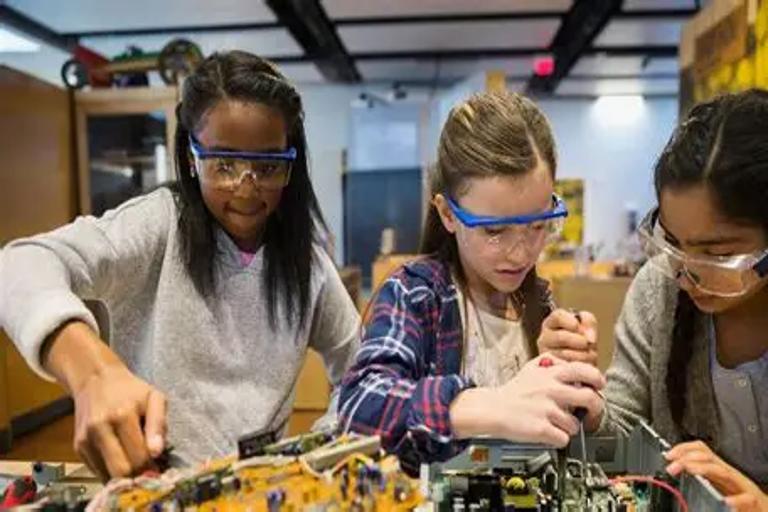Education
New STEM Program Empowers Girls in High Schools
The initiative across Toronto public schools aims to close the gender gap in science and technology careers.
July 03, 2025 at 19:56 — By By Horizon Tribune Editorial Team

A new initiative rolled out across Toronto high schools aims to close the gender gap in science and technology by empowering young women through focused STEM programming. The program, titled Girls Code the Future, is a joint effort between the Toronto District School Board and local tech companies to increase female participation in computer science, engineering, and related fields.
Girls Code the Future launched in 15 high schools this semester, offering dedicated computer labs, guest speakers from the industry, and hands-on projects that promote creative problem solving. The goal is to encourage girls to see themselves as future innovators and to dismantle stereotypes about gender and technology.
In its first few weeks, the program has already enrolled over 300 participants. “What’s exciting is the energy in the classroom,” said program director Karen Doyle. “We’re not just teaching coding — we’re building confidence.”
Each participating school hosts weekly workshops led by female professionals from Toronto’s tech sector. Topics range from web development and robotics to ethical hacking and data science. Students are encouraged to build their own apps and showcase their projects in an end-of-term expo.
Grade 11 student Zahra Sheikh says the experience has been eye-opening. “I used to think programming was just typing numbers. Now I see it’s about solving real-world problems. I want to make an app that helps people with hearing loss communicate better.”
To further support students, the program offers mentorship opportunities with engineers from Shopify, Wattpad, and the University of Toronto. These one-on-one connections have proven vital in retaining student interest and providing a window into career paths they may not have previously considered.
A key element of the initiative is representation. “When girls see women thriving in these roles, it changes what they believe is possible,” said mentor and software engineer Sylvia Kwong. “I didn’t have that growing up. It makes a difference.”
Girls Code the Future is also working to address barriers outside the classroom. That includes providing laptops for students who don’t have access at home and offering transit subsidies for those commuting from underserved neighborhoods.
Feedback from teachers and parents has been overwhelmingly positive, with some calling for the program to be expanded citywide. Plans are already underway to introduce the initiative to middle schools by next year, building a pipeline of interest from an earlier age.
As Toronto’s tech sector continues to grow, advocates say this kind of investment in education is critical. It’s not just about skills — it’s about equity, opportunity, and rewriting the narrative about who gets to shape the digital future.